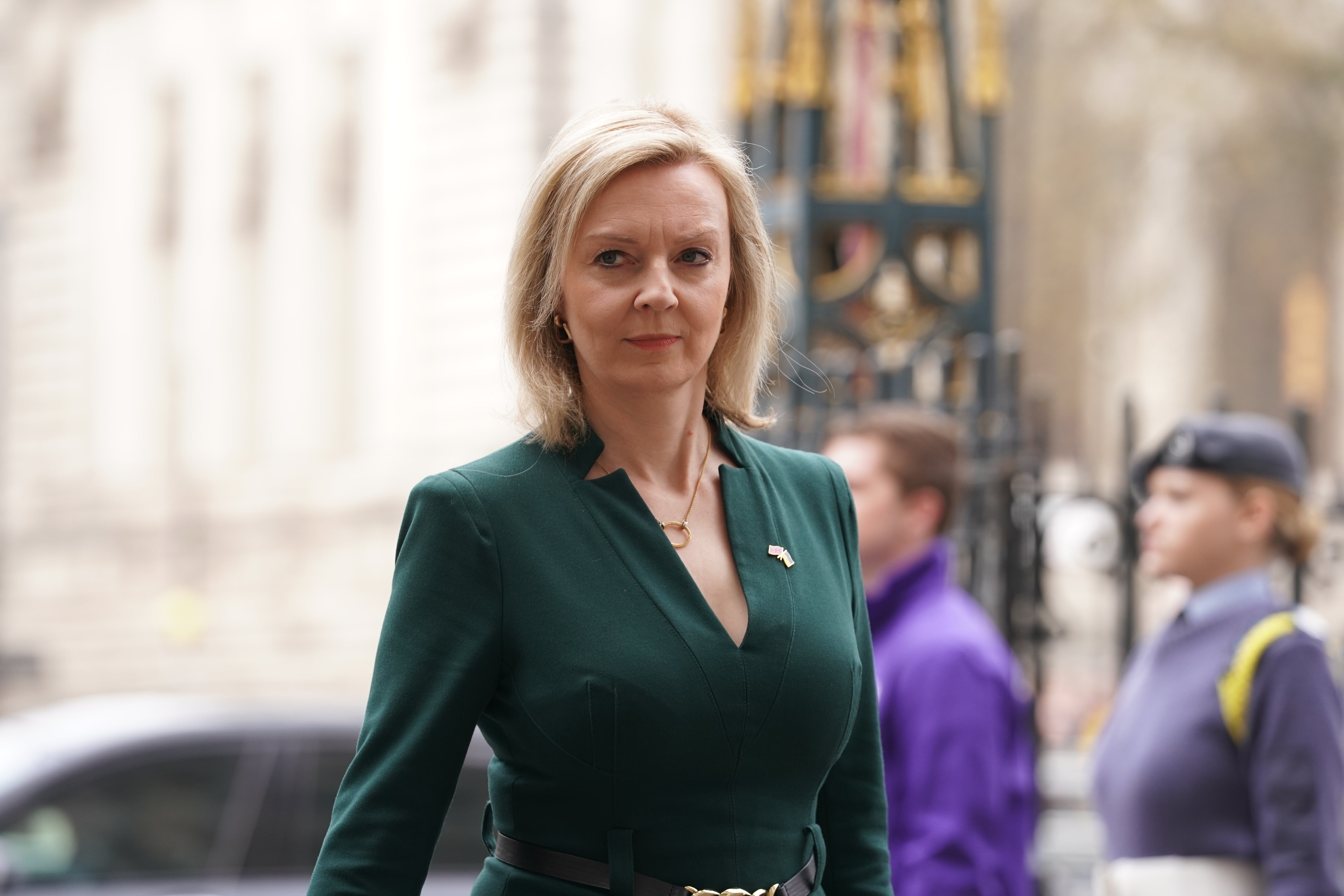British spies to help link Russian leaders to war crimes in Ukraine
Foreign Secretary Liz Truss said everyone in the Russian chain of command should be held accountable for atrocities.

Your support helps us to tell the story
From reproductive rights to climate change to Big Tech, The Independent is on the ground when the story is developing. Whether it's investigating the financials of Elon Musk's pro-Trump PAC or producing our latest documentary, 'The A Word', which shines a light on the American women fighting for reproductive rights, we know how important it is to parse out the facts from the messaging.
At such a critical moment in US history, we need reporters on the ground. Your donation allows us to keep sending journalists to speak to both sides of the story.
The Independent is trusted by Americans across the entire political spectrum. And unlike many other quality news outlets, we choose not to lock Americans out of our reporting and analysis with paywalls. We believe quality journalism should be available to everyone, paid for by those who can afford it.
Your support makes all the difference.British intelligence is to help Ukrainian war crimes investigators establish the chain of command between leaders in Moscow and Russian commanders on the ground.
Foreign Secretary Liz Truss said a team of UK war crimes experts will be travelling to Poland early in May to assist as the Ukrainians gather evidence of Russian atrocities on the ground.
They will include experts in conflict-related sexual violence.
Speaking following talks with the International Criminal Court in The Hague, Ms Truss said British intelligence would also be assisting in holding the Russian political leadership to account.
“This is about collecting a wide range of evidence – witness statements, forensic evidence, video evidence,” she said.
“We will also use British intelligence to help show the link between what is happening on the front line and the Russian authorities, because it is important that everybody in the chain of command is held to account.”
She gave no further details, but the head of the GCHQ spy agency Sir Jeremy Fleming last month suggested they had acquired intelligence that President Vladimir Putin’s advisers were afraid to tell him what was really happening on the ground.
Meanwhile, Western officials have said the Russian advance in the eastern region of the Donbas – which is part-held by pro-Moscow separatists – was being marked by in indiscriminate use of firepower against civilian target.
“There is not a building in some of those villages which is being left intact after these artillery bombardments,” one official said.
In its latest intelligence assessment, the UK Ministry of Defence said Russian forces were paying a high price for limited gains of land.
“The Battle of Donbas remains Russia’s main strategic focus, in order to achieve its stated aim of securing control over the Donetsk and Luhansk oblasts,” it said.
“Due to strong Ukrainian resistance, Russian territorial gains have been limited and achieved at significant cost to Russian forces.”
Western officials said the Russians were at times advancing by as little as 1 kilometre a day.
While the the Ukrainians were also suffering losses in the fighting, officials said they were not on the same scale as those incurred by the Russians and were not having the same impact on morale.
“Those losses on Russian forces we assess to be having a significant impact on the will to fight of wider Russian forces but the Ukrainian losses are not affecting the morale of the Ukrainian forces,” one official said.